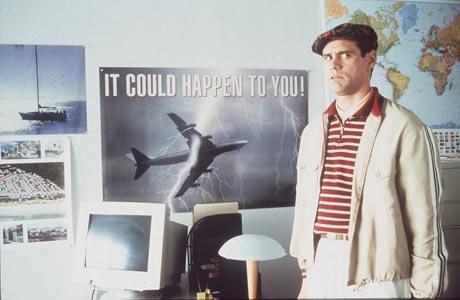In a fascinating New York Times article, Liz Alderman reports on the ghost companies of Europe, phantom businesses with pretend inventory and customers, which exist merely to supply (unpaid) make-believe jobs to the long-term unemployed, novice workers who need experience or those retraining for new industries.
Considered broadly, such an arrangement already exists all over the globe, although not with the express mission of helping citizens back into the workforce. A massive number of people already have fake, non-paying jobs in the Freeconomy. Each day, hundreds of millions create content for Facebook, which would make the company the largest sweatshop in world history, if it paid even a nominal amount. Should technological unemployment become widespread, become the new normal, we’ll continue to produce content and products, even if there’s no compensation. Maybe we’ll receive “free” minutes or bonus points or nothing at all. But for that to happen in a large-scale and permanent way, we’ll have to start taxing capital rather than labor, and there will need to be a guaranteed basic income.
The opening of Alderman’s piece:
At 9:30 a.m. on a sunny weekday, the phones at Candelia, a purveyor of sleek office furniture in Lille, France, rang steadily with orders from customers across the country and from Switzerland and Germany. A photocopier clacked rhythmically while more than a dozen workers processed sales, dealt with suppliers and arranged for desks and chairs to be shipped.
Sabine de Buyzer, working in the accounting department, leaned into her computer and scanned a row of numbers. Candelia was doing well. Its revenue that week was outpacing expenses, even counting taxes and salaries. “We have to be profitable,” Ms. de Buyzer said. “Everyone’s working all out to make sure we succeed.”
This was a sentiment any boss would like to hear, but in this case the entire business is fake. So are Candelia’s customers and suppliers, from the companies ordering the furniture to the trucking operators that make deliveries. Even the bank where Candelia gets its loans is not real.
More than 100 Potemkin companies like Candelia are operating today in France, and there are thousands more across Europe. In Seine-St.-Denis, outside Paris, a pet business called Animal Kingdom sells products like dog food and frogs. ArtLim, a company in Limoges, peddles fine porcelain. Prestige Cosmetique in Orleans deals in perfumes. All these companies’ wares are imaginary.
These companies are all part of an elaborate training network that effectively operates as a parallel economic universe.•
Tags: Liz Alderman

